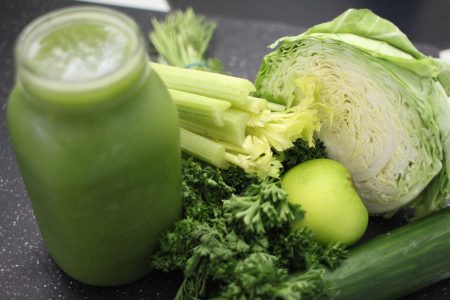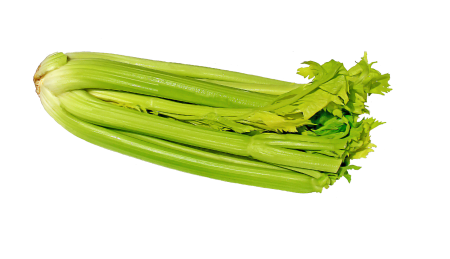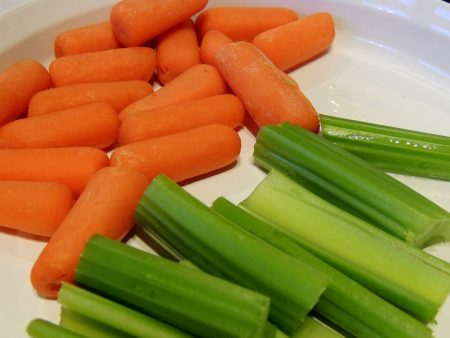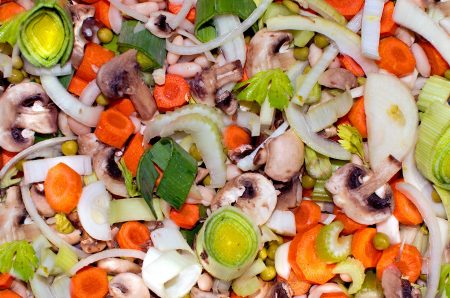Celery Juice,
Should You Be Drinking It?
Celery juice is trendy right now, which I honestly didn’t realize until someone asked me to write about it for them. Celery is a healthy vegetable so is the hype about celery juice real and should you be drinking it?
Is This Just a Fad And Why is it So Popular Right Now?
First let’s look at the benefits of celery, a plant that the bitterness has been bred out of centuries ago. It is a cooling vegetable and has been known to be useful for the stomach, liver, kidneys and bladder.
Celery can be useful for those with cancer, high blood pressure and for those who suffer from migraines. This is due to a phytochemical compound found in celery called coumarins. Four ribs of celery per day can lower blood pressure by 12-14% and cholesterol by 7%. Many people don’t like to chew on celery so making a juice from four stalks per day and drinking that can be helpful for those with the issues mentioned.
Celery juice or eating celery can also be useful to consume after a workout as it can replace electrolytes lost via sweating such as potassium and sodium.
Eating two stalks per day, two to three times per week can reduce your risk of lung cancer by 60%. Studies also show that celery is effective against ovarian, pancreatic, prostate, breast, and liver cancer cells.
Pros and Cons to Drinking Celery Juice
While the juice is all the rage right now, making your own takes time and has its drawbacks. When you juice any fruit or vegetable you remove the fiber. The fiber is what makes you feel full and the fiber contributes to overall good gut and bowel health and cardiovascular health. If you juice the celery, you have just cancelled out those celery benefits by turning it into juice.
Juicing takes time, can be a messy chore with all the time to clean out the juicer and a quality juicer can be pricey.
So, what happens?
Most people will reach for prepared celery juice. I don’t recommend drinking pre-made celery juice for several reasons.
The Four Reasons to Avoid Store Bought Celery Juice
One: read the label as most of them are going to contain not just celery but other added ingredients and often times added sweetener or artificial sweetener. (some will have agave as the added sweetener which many think is healthy but in truth it is mostly fructose and impacts your blood sugar just as white sugar would.)
Two: when you make your own juice, you should consume it within a few hours to reap the full nutrient benefits. The ones sitting on your store shelf most likely already are depleted of the nutrient content.
Three: odds are the celery and the other fruit and vegetables in the prepared juice are not organic and thus you are adding toxins into your diet.
Four: As already stated, and same goes for homemade juice, it removes the fiber and thus the benefits reaped from consuming fiber.
To sum it up, buying prepared juice from time to time isn’t necessarily bad for you but don’t think it is some magical cure for your ailments because it is not.
You would be better off, adding a few ribs of celery to a smoothie (retains the fiber) or eating a few stalks of celery per day to reap some of the health benefits. Add celery to soups, stews, put peanut butter on it, and add it to a smoothie to reap its benefits. Skip the juice and you will save time and money. It is so much easier to add a few stalks to your smoothie or to a soup or stew! Make sure to stick to using organic celery.
Benefits of EATING Celery
- Use it for cancer prevention support, high blood pressure, elevated cholesterol, to replace electrolytes lost via sweating or when sick,
- May be useful for joint pain and gout (these studies used celery seed extract and this is most often used in a supplement form)
- If you cannot afford to use organic celery, then avoid using celery on a regular basis. It is a crop that is contaminated with chemicals, pesticides and herbicides.
- It is low in carbs-one stalk has 1.2 carb grams
- It is rich in vitamin K1
- Acts as a mild diuretic
- It is a low- calorie food
- It is rich in antioxidants, vitamin C, folate
- Celery is rich in fiber- Most of us don’t consume near to the amount of fiber that we should. Celery contains mostly insoluble fiber. This type of fiber attracts water as it moves through the intestinal track. This is important because it bulks up your stool helping you to have regular bowel movements and to clean out the colon. Fiber helps to regulate cholesterol and reduces your risk of diabetes. If you juice celery you have just removed a large benefit of eating this vegetable.
- One stalk contains about 10 calories
- Has a high water content
- good to use for constipation due to its fiber content
- aids in digestion
- can calm the nervous system
- reudces inflammation
Ways to Add Celery Into Your Diet
- Add it to tuna fish or egg salad
- Add it to soups and stews
- Add it raw or cooked to quinoa, bean and rice bowls
- Add it to your morning smoothie
- Eat it with peanut butter
- Dip it into hummus
- Add to stir fry’s
Bottom Line
Consuming homemade celery juice can take time and commitment and you don’t reap the fiber benefits.
But if you are willing to make fresh celery juice using organic celery you can reap benefits, just minus the fiber. As antidotal, I have clients that make celery juice daily and state they have more energy and just feel better. I think if you are not going to eat celery and are willing to juice, it is a good option and mix this into your schedule with adding it into smoothies.
Personally, I just don’t like to juice all the time. I instead add celery to smoothies, soups, stews, and stir fry.
Store bought celery juice most likely has added ingredients, sugar and little nutrient content by the time you consume it. If this is the only way you are going to drink celery juice, just save your money and skip it.
If you are using it as a post workout drink for electrolytes, then a homemade juice may be beneficial for you.
Sources
The Anti Cancer Powerhouses. March 2019 www.wddty.com
Bauman, E. & Friedlander, J. (2016) Foundations in Nutrition. CA: Bauman College.





Leave A Comment
You must be logged in to post a comment.